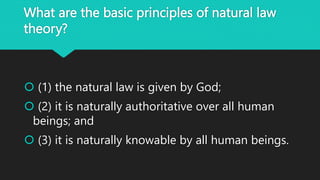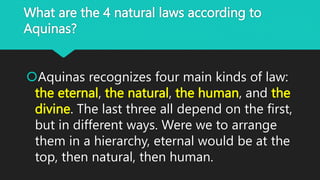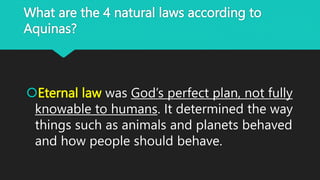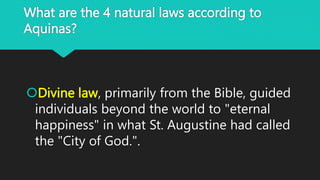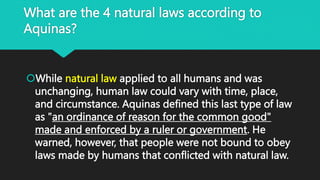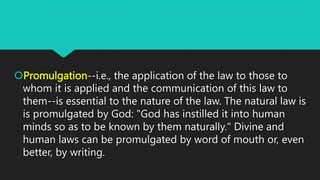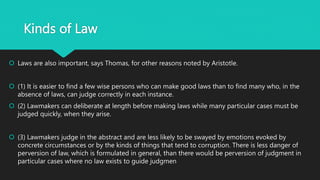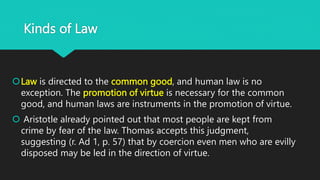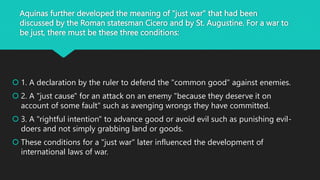St. Thomas Aquinas was a medieval scholar who reconciled Aristotle's political philosophy with Christian faith. He argued that governments must work for the common good of all people. Aquinas believed natural law, which is self-evident or deduced from self-evident ideas, governs human behavior. According to Aquinas, there are four types of law - eternal, natural, human, and divine - with eternal law being the highest, followed by natural law, then human law. Natural law applies to all humans and guides them to use reason to lead their lives.
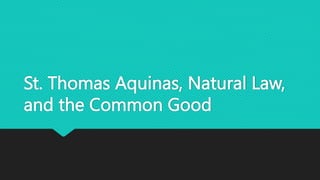

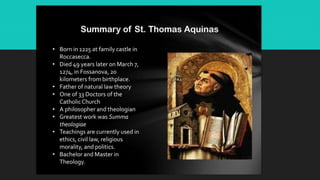
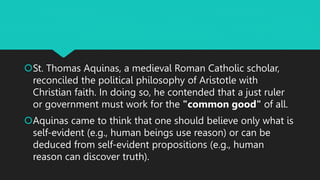
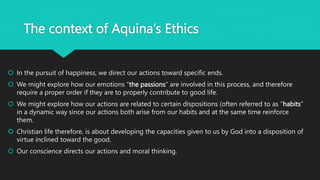
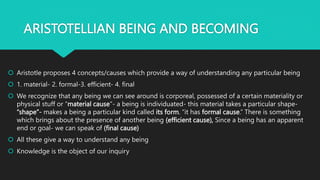
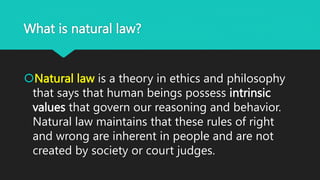
![What is natural law?
Aquinas wrote most extensively about natural
law. He stated, "the light of reason is placed by
nature [and thus by God] in every man to guide
him in his acts." Therefore, human beings, alone
among God’s creatures, use reason to lead their
lives. This is natural law.](https://image.slidesharecdn.com/naturallawlesson3-221105130319-e2c69178/85/Natural-Law-Lesson-3-pptx-8-320.jpg)
